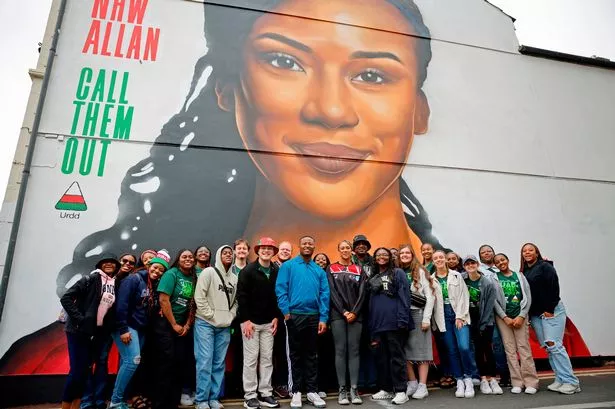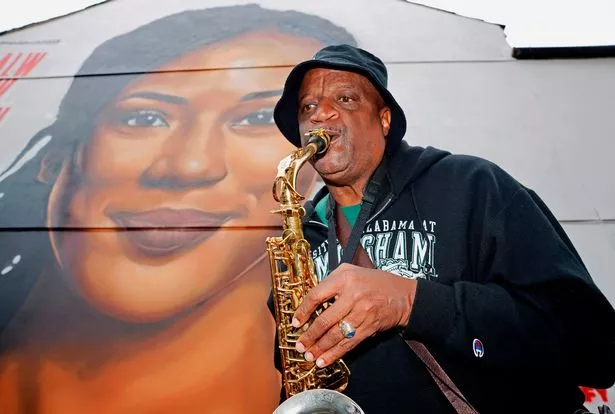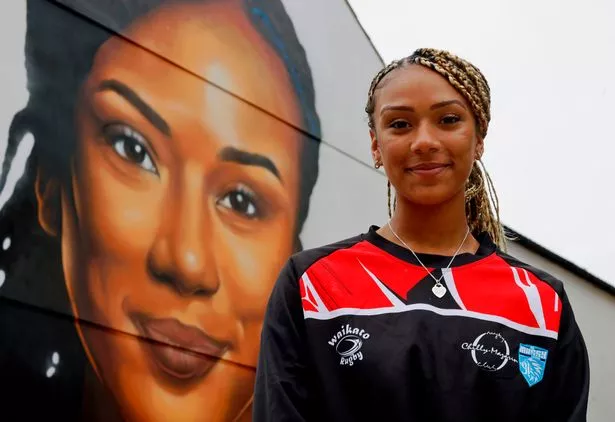A choir with a meaningful historical connection to Wales performed outside a house in Adamsdown to coincide with the unveiling of a powerful new mural. The gospel choir from the University of Alabama at Birmingham delivered an uplifting performance of two songs in Cardiff, showcasing the deep and unexpected ties between Alabama and Wales as part of a cultural exchange.
The bond between Wales and Birmingham, Alabama dates back to 1963 when the 16th Street Baptist Church was bombed by members of the Ku Klux Klan, a brutal attack that played a pivotal role in the civil rights movement. Surprisingly, Wales swiftly rallied behind the cause, with the Western Mail leading a campaign to raise funds for the restoration of the church’s stained glass window. An article in the Tuscaloosa News, an Alabama newspaper, quoted designer John Petts, who suggested that Wales could lead the way for other nations in rebuilding the damaged church.

To this day, the community of Birmingham maintains a strong connection with Wales, and the church’s “Welsh Window” stands as a testament to their enduring affinity. A delegation from the University of Alabama at Birmingham’s gospel choir recently embarked on a cultural tour of Wales and made a special visit to Cardiff for the unveiling of a remarkable mural.
The mural, titled “Call Them Out,” was painted on a house in Moira Terrace, Adamsdown, as part of Urdd Gobaith Cymru’s “Peace and Goodwill Message” campaign for 2023. The artwork, which encourages people to denounce racism when they encounter it, was unveiled to the captivating melodies of the gospel choir.
Dr. Reginald Jackson, an associate professor of music at the University of Alabama at Birmingham and the choir’s leader, expressed deep gratitude for the warm reception, stating, “We are friends and partners together, and we are so honored to be here. I’m moved by the fact that Wales consistently addresses not only issues within their own country but also worldwide problems. Anti-racism is personally important to me because our ancestors faced significant racism in the United States. By committing yourselves to this cause, you are raising global awareness and promoting unity, and I truly appreciate that.”

Dr. Jackson explained the connection between Wales and Birmingham, saying, “As soon as the 1963 bombing occurred, it made the front page of your newspaper. Wales was attuned to global events. It’s amazing to think about because television was not as prevalent back then, but it still managed to capture front page news. The Welsh Window still stands in the church—it’s a significant presence when you walk in.”
During their visit to Wales, the choir participated in the Urdd Eisteddfod in Llandovery, where they learned to sing in Welsh. Dr. Jackson added, “This experience has been life-changing for the students and all of us. Hearing the music, singing in the Welsh language, and embracing your culture—I can’t stress enough how impactful it has been.”

He continued, “It’s one thing to read or hear about it, but being here, witnessing the beauty of your country, indulging in the food, and meeting kind-hearted individuals—that’s the best part.”
- People warned not to go in the sea at 22 Welsh beaches
- ‘My son is scared. Men do strange things. There are drug needles. We can’t live here any more’
- He attacked her and kept breaching restraining orders. All he got was a fine
- Police knew immediately something wasn’t right with this Lamborghini then they checked some more
- Luke Evans pays touching tribute to grandad who has died, saying ‘it’s hard to accept’
The mural features the image of Nia Fajeyisan, a young rugby player who has been involved with Urdd Gobaith Cymru since her childhood. Fajeyisan described seeing her face on the side of the building as “surreal” and “freaky,” but expressed her approval of the beautiful artwork. She also highlighted her role as a young ambassador for the #FelMerch project, which aims to empower young girls and women through sports. She praised the “Call Them Out” message for encouraging young people to have the courage and confidence to actively denounce racism rather than simply claiming to be “not